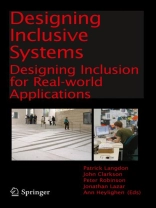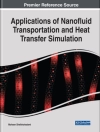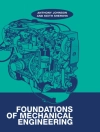The Cambridge Workshops on Universal Access and Assistive Technology (CWUAAT) are a series of workshops held at a Cambridge University College every two years. The workshop theme: “Designing inclusion for real-world applications” refers to the emerging potential and relevance of the latest generations of inclusive design thinking, tools, techniques, and data, to mainstream project applications such as healthcare and the design of working environments. Inclusive Design Research involves developing tools and guidance enabling product designers to design for the widest possible population, for a given range of capabilities.
There are five main themes:
Designing for the Real-World
Measuring Demand And Capabilities
Designing Cognitive Interaction with Emerging Technologies
Design for Inclusion
Designing Inclusive Architecture
In the tradition of CWUAAT, we have solicited and accepted contributions over a wide range of topics, both within individual themes and also across the workshop’s scope. We ultimately hope to generate more inter-disciplinary dialogues based on focused usage cases that can provide the discipline necessary to drive further novel research, leading to better designs. The aim is to impact industry and end-users as well governance and public design, thereby effectively reducing exclusion and difficulty in peoples’ daily lives and society.
विषयसूची
1. Designing for Real-World Applications: Work and Healthcare.- 2. Designing Inclusive Assistive and Rehabilitation Systems.- 3. Measuring Product Demand and People’s Capabilities.- 4. Mainstreaming and Scaling Technology for Healthcare.- 5. Designing Cognitive Interaction with Emerging Technologies.- 6. Effective Engagement with Industry.- 7. Designing Inclusive Spaces: Architecture and Buildings.- 8. Collaborative and Participatory Design for Inclusion.- 9. Data Issues: Visualizing Inclusion: Mining of Profile Data.- 10. Legislation, Standards and Policy in Inclusive Design.
लेखक के बारे में
Dr Patrick Langdon is Senior Researcher in the Cambridge University Engineering Department Engineering Design Centre, Lead Researcher in Inclusive Design and Consortium Manager of the Inclusive Design 3 project. His Cognitive Science Ph D examined the psychological reality of certain artificial intelligence based theories of computer vision. In collaboration with Professor P.J. Clarkson; Director of the EDC, Professor P. Robinson, of the Computer Lab and Professor S. Godsill, of the Signal Processing Group, he has recently investigated the effect of haptic force feedback on motion-impairments. His research concerns cognitive models of interaction in inclusive design, and the use of haptic feedback to assist motion control. He has pursued a number of research directions in the last 10 years. These include: (1) the properties and design of haptic interfaces for use in computer displays for the movement disabled; (2) the representation and formulation of statistical data on disability, for use in inclusive design; (3) integration of software development and empirical methodology for good design research practice; (4) structure of data for capability assessment; (5) comparative studies of clustering methods for design knowledge exploration; (6) cognitive scales for capability assessment; (7) methods for ethnographic and observational studies of aerospace; and (8) developing scales for product-capability interaction assessment in design. He is editor of a number of books in the fields of inclusive design, universal accessibility and assistive technology and has been involved in the organisation of many international workshops in engineering design; has recently published journal and conference papers in ergonomics, HCI and engineering design and given seminars at the IMech E. He is currently working in the areas of modelling learning, movement and cognition for inclusive design and computer assistance for motion impaired interface use. He is External Examiner for the Kings College London and Guy’s Hospital Intercollegiate MSc in Assistive Technology.












